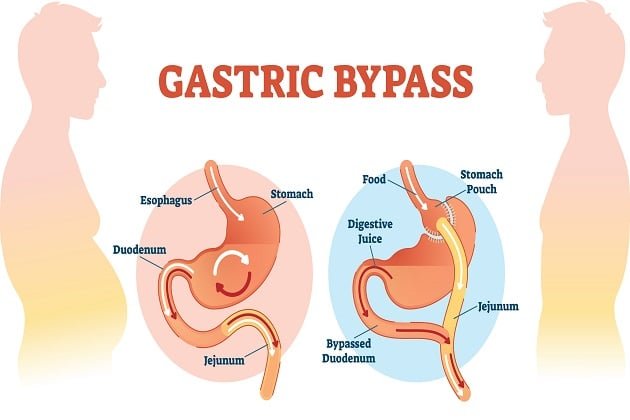Extreme Weight Loss Without Surgery: Is It Possible and How to Achieve It?
For individuals struggling with obesity or excess weight, extreme weight loss might feel like the only option—but not everyone is ready or able to undergo weight-loss surgery. The good news is that extreme weight loss without surgery is possible. While it requires strong commitment, consistency, and support, many people have transformed their bodies and health through lifestyle changes alone.
This article breaks down how extreme weight loss can be achieved without surgery, the challenges involved, and the key strategies that lead to long-term success.
🧭 Is Extreme Weight Loss Without Surgery Really Possible?
Yes—many people lose 50, 100, or even more pounds through non-surgical methods. However, the process is slower and more mentally demanding than surgical options. Surgery alters the digestive system to force calorie reduction and nutrient malabsorption, but without surgery, weight loss depends entirely on behavior change.
The Keys to Success Include:
-
A well-structured, calorie-controlled diet
-
A consistent, progressive exercise routine
-
Behavioral and emotional support
-
Medical guidance when necessary (especially if using medications or meal replacements)
🥗 1. Nutrition: The Foundation of Extreme Weight Loss
Calorie Deficit
Weight loss occurs when you consume fewer calories than your body burns. The larger and more consistent the calorie deficit (safely maintained), the more weight you can lose over time.
-
Aim for a 500–1000 calorie deficit per day for 1–2 pounds of weight loss per week.
-
Use apps or journals to track food intake accurately.
Macronutrient Balance
-
Protein: High-protein diets preserve muscle mass and promote satiety. Aim for 80–120g per day, depending on your body size and goals.
-
Healthy fats: Include nuts, avocados, olive oil, and fatty fish.
-
Complex carbs: Prioritize vegetables, legumes, whole grains, and fruits.
Meal Timing and Portion Control
-
Eat smaller meals more frequently (4–6 meals/snacks per day).
-
Use portion control tools like a food scale or smaller plates.
-
Avoid mindless snacking or eating late at night.
Avoid:
-
Sugary drinks, processed snacks, refined carbs
-
Highly processed “diet” foods full of artificial ingredients
-
Emotional or stress eating patterns
🏋️ 2. Exercise: Burning Fat and Building Strength
Exercise is essential for extreme weight loss and long-term maintenance.
Cardio
-
Begin with low-impact activities: walking, biking, swimming.
-
Gradually increase duration and intensity.
-
Goal: 150–300 minutes per week of moderate-intensity cardio.
Strength Training
-
Builds muscle, which increases metabolism.
-
Prevents muscle loss during weight reduction.
-
Aim for 2–3 sessions per week targeting major muscle groups.
Non-Exercise Activity (NEAT)
-
Small movements like walking, standing, stretching, and household chores increase calorie burn.
-
Use a step tracker and aim for 8,000–10,000 steps daily.
🧠 3. Mindset and Behavioral Changes
Weight loss is as much a mental challenge as it is a physical one.
Why You Eat Matters
-
Identify emotional triggers like stress, boredom, or sadness.
-
Use alternatives to eating for comfort: journaling, walking, talking to a friend, or meditating.
Build New Habits
-
Eat mindfully—no screens, distractions, or rushed meals.
-
Plan meals and snacks ahead of time.
-
Sleep 7–9 hours per night to support hunger regulation and recovery.
Accountability
-
Share your goals with a friend, coach, or group.
-
Keep a progress journal—track weight, measurements, fitness, mood.
-
Celebrate non-scale victories (clothing size, energy levels, improved lab results).
💊 4. Medical Support and Tools
Extreme weight loss doesn’t have to happen alone.
Supervised Diet Programs
Medical weight loss clinics often offer:
-
Low-calorie or very-low-calorie diets (VLCDs)
-
Meal replacements under supervision
-
Regular health monitoring
Weight Loss Medications
For eligible patients, doctors may prescribe medications that:
-
Reduce appetite
-
Improve insulin sensitivity
-
Help manage binge-eating behavior
Examples: GLP-1 agonists (like semaglutide), phentermine-topiramate, or bupropion-naltrexone. These are not substitutes for diet/exercise but can enhance results when paired with lifestyle change.
Therapy and Support Groups
Cognitive Behavioral Therapy (CBT), weight-loss coaching, or group counseling can help address deeper habits and emotional barriers to progress.
⏳ 5. How Long Does It Take?
Unlike surgery, non-surgical weight loss is slower, but it can still be dramatic and sustainable.
-
With healthy habits and consistency, losing 1–2 pounds per week is typical.
-
Over one year, this equals 50–100 pounds of fat loss—without surgery.
-
Some people lose even more, especially in the first 6 months of intense change.
⚠️ Challenges to Expect
-
Plateaus: Your body may adapt. Re-evaluate food intake and increase movement.
-
Mental fatigue: Motivation can drop. Focus on habits, not willpower.
-
Loose skin: Significant weight loss can lead to excess skin; resistance training helps minimize this.
✅ Conclusion
Extreme weight loss without surgery is not only possible—it’s achievable for those willing to commit to long-term lifestyle change. It requires patience, education, and support, but the physical and emotional rewards can be life-changing. Whether your goal is to lose 50, 100, or more pounds, taking the non-surgical route is a powerful act of self-discipline, strength, and self-care.







